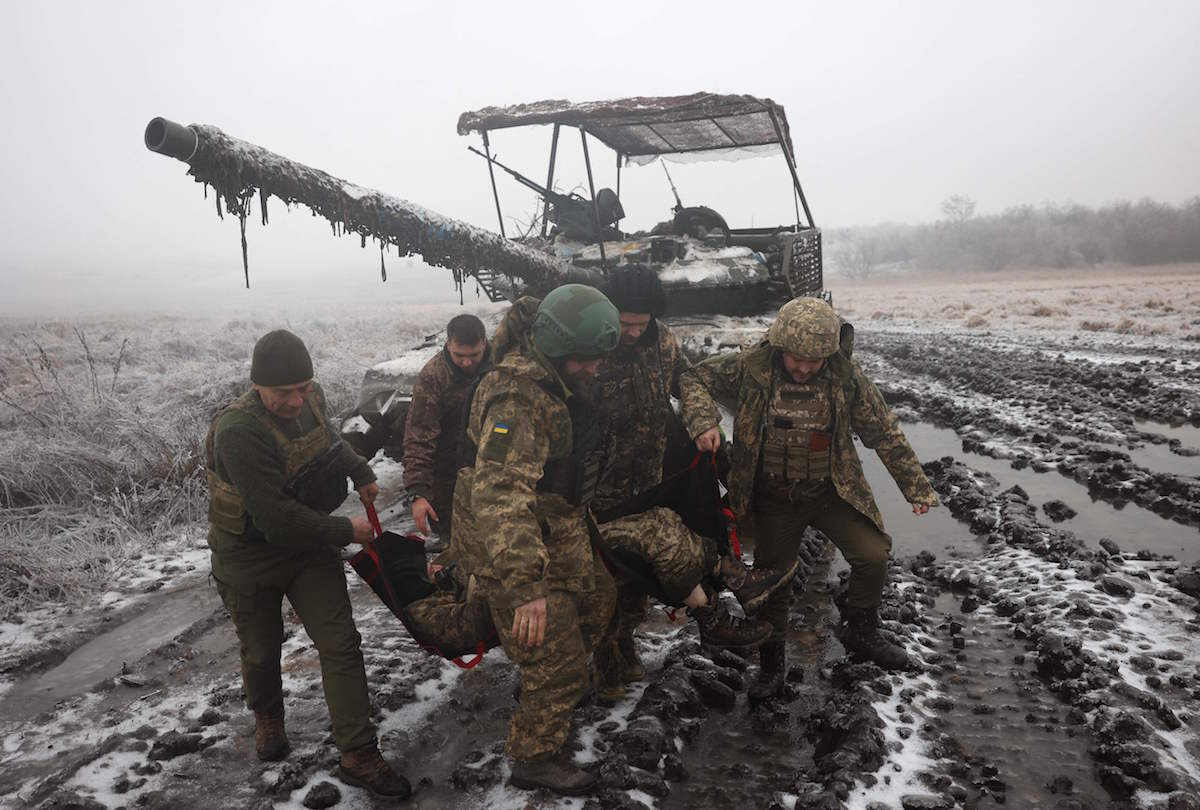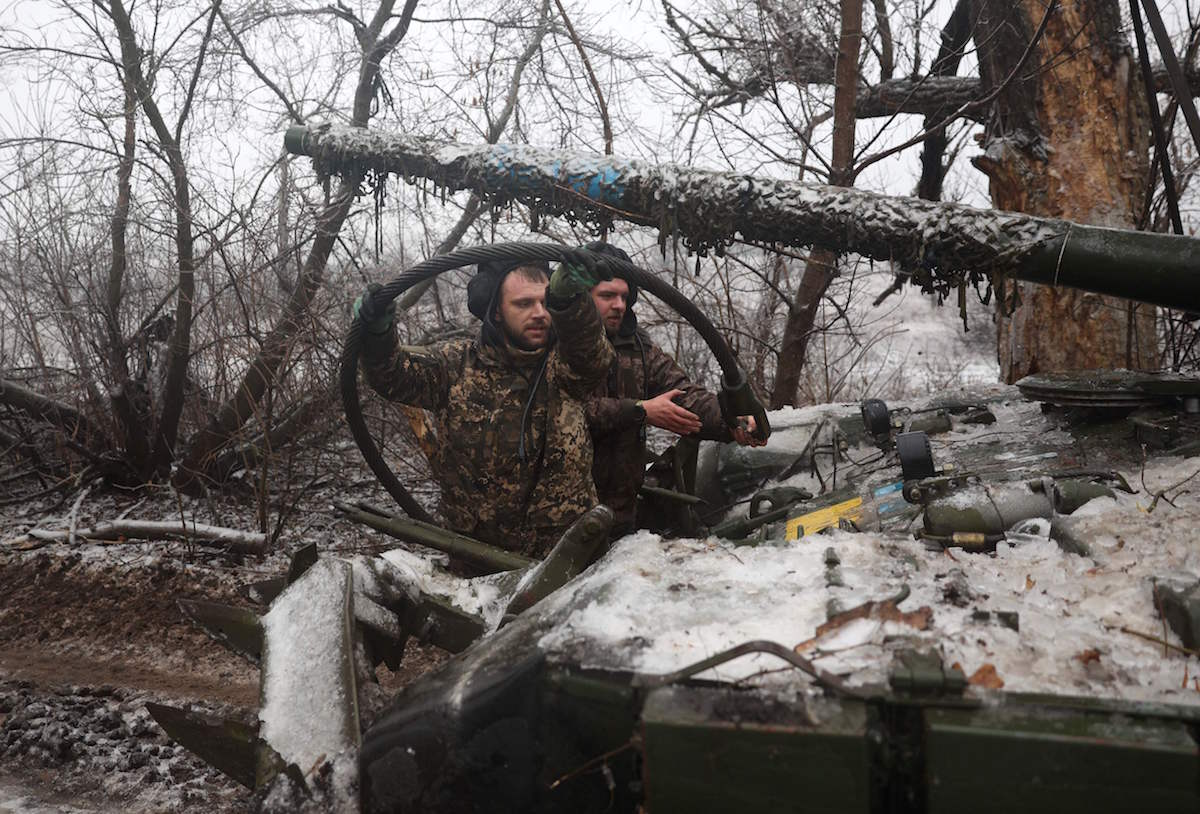
By Emmanuel PEUCHOT
NEAR BAKHMUT, Ukraine, Dec 19, 2023 (AFP) – After 22 months of war with a horrific human cost, the Ukrainian army is struggling to find recruits to battle Russian forces that are once again on the offensive.
Some Ukrainians who joined the fighting at the February 2022 start are still in combat and exhausted, while volunteers to replace those killed or wounded are becoming rarer.
“Our units are understaffed. We need young, motivated people under 40,” Major Oleksandr Volkov told AFP near the Russian-held frontline city of Bakhmut.
The commander of a battalion in the 24th mechanised brigade opted to cancel an outdoor training session for new recruits because of frost, aiming to avoid injuries to his much-needed troops.
Volkov noted that some people may have been misled into believing Ukraine’s war effort was nearing victory, even as concern grows in Kyiv that Western patience and backing could be cracking.
“But the current situation is not that simple. The enemy is really very strong, very powerful. And we’re doing everything we can to hold him back and beat him,” he added.
Despite Ukraine’s summer counteroffensive that employed billions of dollars’ worth of Western weapons, the front lines have barely shifted in over a year.
Russian forces have gone back on the attack since the fall, and were pressing to make gains, especially in the east.

– Adrenaline and excitement –
With more soldiers and ammunition at their disposal, the Russian army has slowly gained ground in areas around places like Kupiansk and Avdiivka, despite major losses in troops and equipment.
Opposite them, the Ukrainians were struggling to defend themselves after two trying years that have inflicted a massive human cost of troops killed, severely wounded and battered mentally by trench warfare.
At the start of the war, “everything was adrenaline-fuelled, in a kind of exaltation…, everyone rushed to fight, so there was no problem” with manpower, said company commander Lieutenant Igor Prokopiak.
“But with time, things calmed down. People had access to social media, they saw the terrible, cruel side of war,” the 32-year-old officer noted.
“That initial adrenaline wore off, the brain woke up, fear appeared and, as a result, people began to fear for their lives,” he added.
Volkov, the battalion commander, said that civilians “don’t really want to join the armed forces,” citing his unit’s composition of 40 percent over-45s.
“I’ve seen a lot of young people in civilian life. I don’t know why they’re not mobilised,” he added.
– ‘It’s the others’ turn’ –
“The state must respond, recruit, replace units, replace people who have already been fighting for two years, including me,” Volkov said.
For several weeks now, soldiers’ wives have been demonstrating in Kyiv to demand their husbands’ return from the front, with slogans such as “Now it’s the others’ turn”.
Ukrainian President Volodymyr Zelensky asked at the start of December that the military command review the recruitment system.
“It’s not just a question of numbers, of people who can be mobilised… It’s a question of timing for each person who is currently in the army, for demobilization, and for those who will join” the units, he said.
Volkov criticised mobilisation offices for being too “Soviet”, with an approach where quality was secondary.
“They are focused solely on the quantitative result,” he added.
The system was also plagued by corruption, which allowed conscripts to escape the army. Last summer, Zelensky had to dismiss all the regional recruitment officers.
New recruit Taras, who just arrived in Volkov’s unit, said he didn’t know why he wasn’t drafted earlier.
“I was stopped in the street and received an invitation to the military registration office. So I went,” said the 38-year-old municipal employee from a western region more than 1,000 kilometres (600 miles) from the front.
“To be honest, the closer I am (to the front), the more interesting it is, the more I understand the need for it. Back home, it’s really far away from all that, so life there is very quiet,” he noted.
“Now I understand that I should have come sooner. Because Ukraine has to be defended.”







